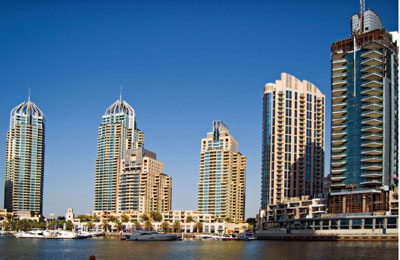
Gulf projects to spearhead Mena growth
Dubai, October 27, 2013
The economy in the Mena region is poised for robust growth in 2013 led by the GCC states which continue to grow rapidly boosted by large infrastructure projects, said a report.
The latest International Monetary Fund (IMF) World Economic Outlook (WEO) projections suggest that economic performance in the Mena region remains mixed and is likely to grow 2.1 per cent in 2013 and 3.8 per cent in 2014, stated the Qatar National Bank (QNB) Group in its report.
On the one hand, growth in the oil importing countries of the region remains subdued as political uncertainty and lack of investment is holding back growth, while on the other, oil exporting countries, including the GCC, continue to grow rapidly, boosted by large infrastructure projects, the report said.
This dual speed development will continue over the next two years, with the Gulf states as the locomotive for growth in the region and the main source of investment and financing, the Qatari bank added.
According to the latest QNB forecasts, the overall Mena economy will grow 2.1 per cent in 2013 and 3.8 per cent in 2014. The overall figure masks a significant difference in performance between oil exporters, including the GCC countries, and oil importers.
Last year’s subdued 2.7 per cent growth in Mena oil importers is expected to fall to 1.6 per cent in 2013 and recover to 3.2 per cent in 2014. However, this will not be sufficient to begin making sizable progress into creating sufficient jobs to reduce these countries’ large unemployment rates, the QNB report stated.
Meanwhile, oil exporters’ healthy growth rates are projected to moderate this year to 3 per cent as they scale back increases in oil production amidst modest global energy demand. Continued large infrastructure investment is expected to lead to a rise in economic growth to 4.5 per cent in 2014, it added.
The economic conditions remain impaired across most Mena oil importers, with continued social unrest in Arab Spring countries, and an economic environment characterized by modest global growth, persistently high food and fuel prices, and weak domestic confidence.
Eroded international reserves are unlikely to improve in the short-term, absent a boost in exports, foreign direct investment (FDI), or remittances.
Moreover, with low fiscal buffers and depleted reserves, considerable fiscal consolidation will be needed in some cases, in order to maintain macroeconomic stability, instill confidence, preserve competitiveness, and mobilize external financing.
Specifically, countries will need to implement more cutbacks in subsidies, coupled with the need to design policies that help contain the wage bill, the report stated.-TradeArabia News Service







